Viagem Brazil: Prostitution, revelry and World Cup soccer own the night


NATAL, Brazil – As midnight approaches on Rua do Salsa, crowds gather outside an open-air mall, the walls out front painted white and splattered with posters. The place is called Placa Jardin.
It’s Friday night. Placa Jardin looks like any of the other numerous bars and clubs and restaurants in this reveler’s paradise on a cobblestone street near the beach. The lights outside alternate blue and green. Strobe lights inside flash red. Music played at maximum volume reverberates down the block.
Dozens of women stand out front, clad in so many miniskirts and tube tops, lips dressed in the brightest red lipstick, feet stuffed in the tallest high heels. They spread down the street, in front of bars, clubs and cars. Some stand next to family members. Others cluster in packs of three or four.
These women are prostitutes, and this is the side of the World Cup no one talks about. Prostitution is legal in Brazil – sex workers even qualify for social security – although it’s illegal for any third party, like a pimp or the owner of a brothel, to profit from a transaction. It’s as much a part of the country’s tourism industry as a jaunt into the rainforest – and one more stop on World Cup itineraries for soccer fans across the globe.
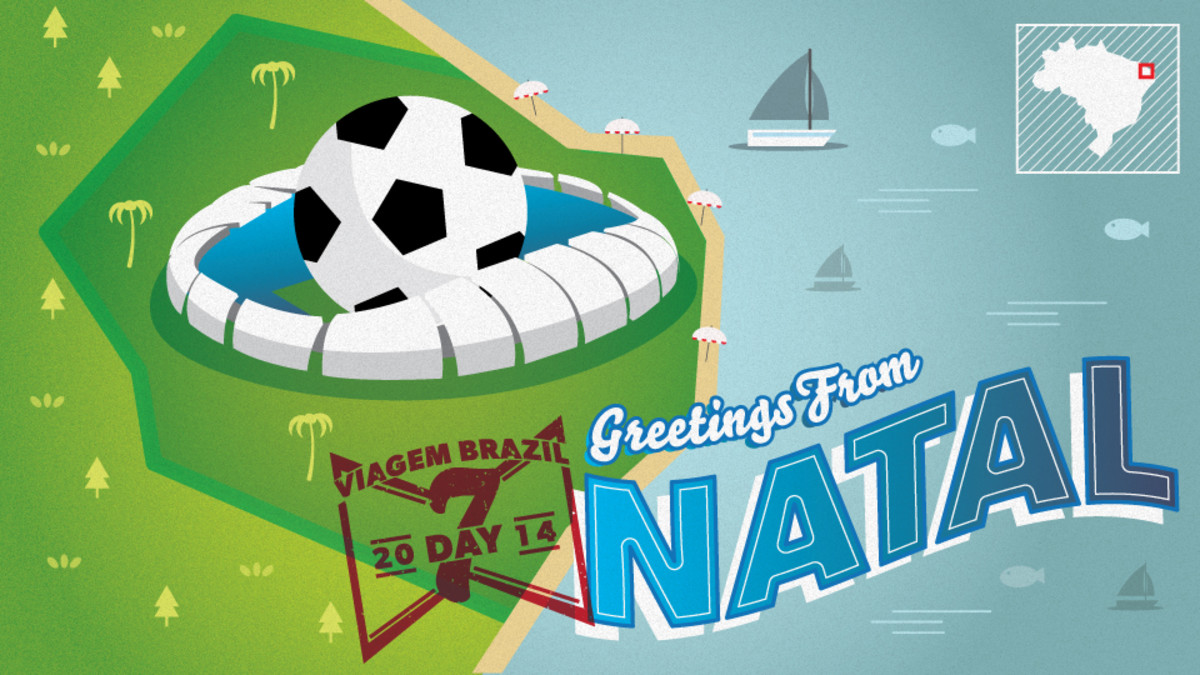
On this night, Kelly is one professional outside Placa Jardin. This is her office. After some hesitation, she agrees to speak with us, through an interpreter, after the bouncer at the door says the last person who came around there asking questions ended up stabbed. She wants to do the interview down the street, away from her counterparts, who she says do not take kindly to any extra attention. That makes them aggressive.
Kelly was born in Recife, another major city in Brazil’s northeast. This is her family business, a trade she learned from her grandmother, who slept with truck drivers in exchange for cash. Two of Kelly’s sisters work in the same industry, at other brothels around town.
She says she started while underage, as a teenager on family vacations to Natal. She says as a matter of fact, without emotion. She later worked in Spain. Then she moved here.
She is wearing a see-through top that reveals a black bra and much cleavage, cut-off jean short-shorts and black heels. She carries a purse. She wears perfume. She knows Portuguese and Spanish, and she speaks a few words of English and Italian, which helps her communicate with the tourists who arrive in Natal from different countries.
Viagem Brazil: Inside and outside FIFA's corporate bubble in Natal
Kelly charges between 150 and 200 reals, the local currency (about $67 to $90), for half an hour’s worth of work. She says she does not work for a pimp, and that while the brothel acts as an intermediary, it charges her no percentage on the sex-money exchange, other than a 10 real cover (about $4.50) charge to enter, a sentiment that is difficult to believe. She says that men pay to come inside the mall, where they sit with the pros and buy them drinks. She says the men believe they’re paying for whiskey, but the women are usually served water instead. She likes her European clients. In her experience, they’re more attentive than the Latin men, kinder, less rough.
Kelly is excited about the World Cup. Business is booming. Ten years ago, when 30 chartered flights packed with men arrived each weekend, before all the laws and programs, it was better. But it’s still good.
Danger, Kelly says, is inherent in the job description. Rapes take place. So do beatings. So does the exploitation of minors.
The government in Natal formed a commission years ago to fight the sexual exploitation of children. It closed one brothel, the Salsa Bar, and turned the space into a parking lot. Hotels and travel agencies are required to sign codes of conduct. Programs mentor at-risk youth. Local hotels post signs to remind tourists of the law. Ours, in the elevators, read: exploitation, sexual abuse and trafficking of children and adolescents are crimes, Dial 100 and denounce it now!
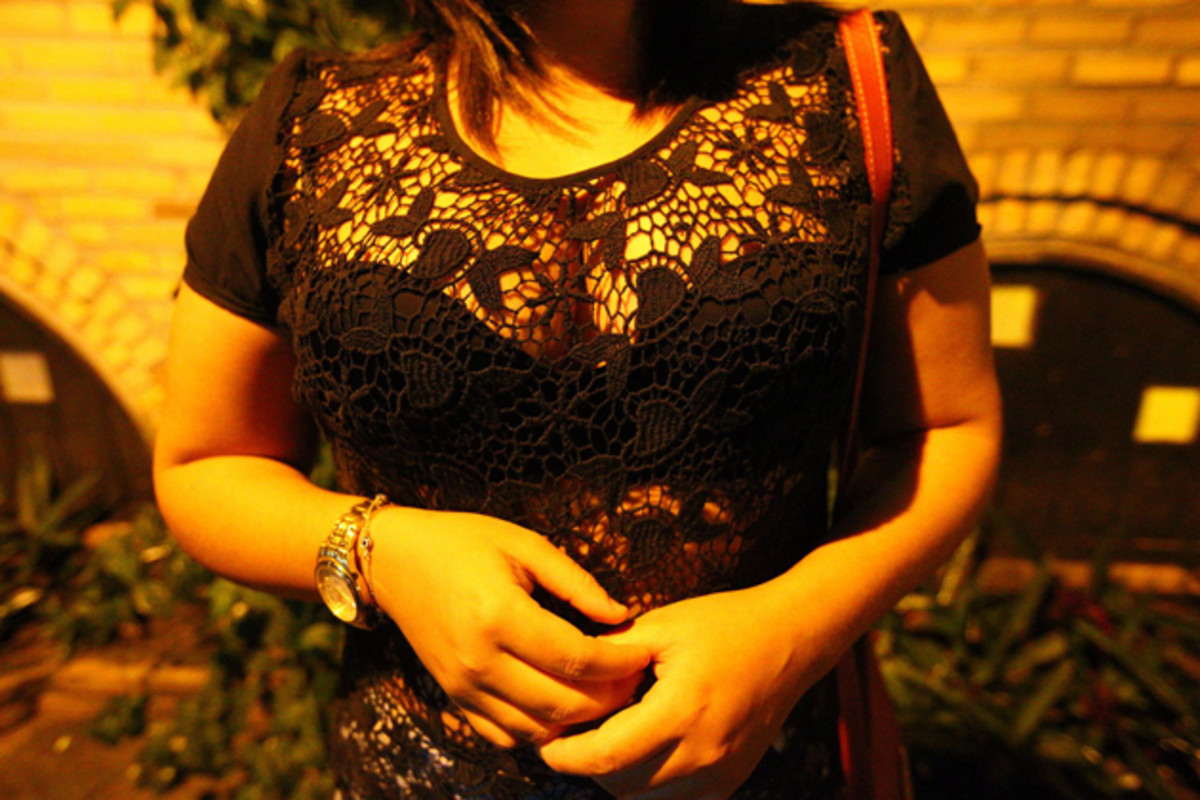
Brazil launched a national campaign against such crimes for Carnaval this year, but while politicians extolled the programs, it takes only a few minutes and two eyeballs on the Rua do Salsa to ascertain that some of the workers are underage. The National Forum for the Prevention of Child Labor estimated the number of child sex workers in Brazil at 500,000 in 2012, an astonishing number impossible to verify. We saw two whose mothers led them down the street, an apparently normal practice. We saw zero cops at night, away from the stadium.
Our interpreter, Juarez Chaves Camera, also works for the civilian police force. He says one common scam in Natal involves a woman, a john and a transaction, followed by an owner insistent that the woman in question is underage and a “cop” who bursts in the front door. That means another, steeper, payment.
Viagem Brazil: Going inside the world’s largest cashew tree in Natal
Kelly describes her job as one way to make a living, a profitable one at that, a trade, a craft and nothing more. This was the life she was born into. She says Brazilians take a more relaxed attitude toward everything, sex included. In Natal, there’s no red-light district, for instance. The brothel is simply part of the neighborhood, nearby a hostel shaped like a castle, hotels filled with tourists and bars teeming with Mexican fans celebrating a victory in their World Cup opener. “It’s my country,” Kelly says through the interpreter. “It’s my life.”
Brazil, of course, is not the only country with a similar approach toward prostitution. It’s tolerated and openly practiced in Thailand, parts of China, Holland, Mexico, even Las Vegas. Busloads of women make the annual trek to the Super Bowl from neighboring cities and states. The industry is ingrained into the culture in Brazil, part of the daily life in tourist towns. Pros lined the busy streets in Ponta Negra, Natal’s beach haven, even one group of three large men in impossibly skimpy outfits. Another city, Belo Horizonte, reportedly gave those interested free English lessons, although Kelly says most working girls already know enough words to close a deal in other languages.
Those less inclined to highlight this side of Brazilian life, politicians included, must fight against the stigmas, everyone who thinks of Brazil as thong bikinis on the beach and brothels scattered across cities. Brazil’s Ministry of Tourism denounced two shirts made by Adidas in advance of the World Cup. One showed a woman in a bikini and a soccer ball and read “Lookin’ to score, Brazil.” The other turned an oversized female posterior into the shape of a heart. (Adidas reportedly recalled the shirts.)
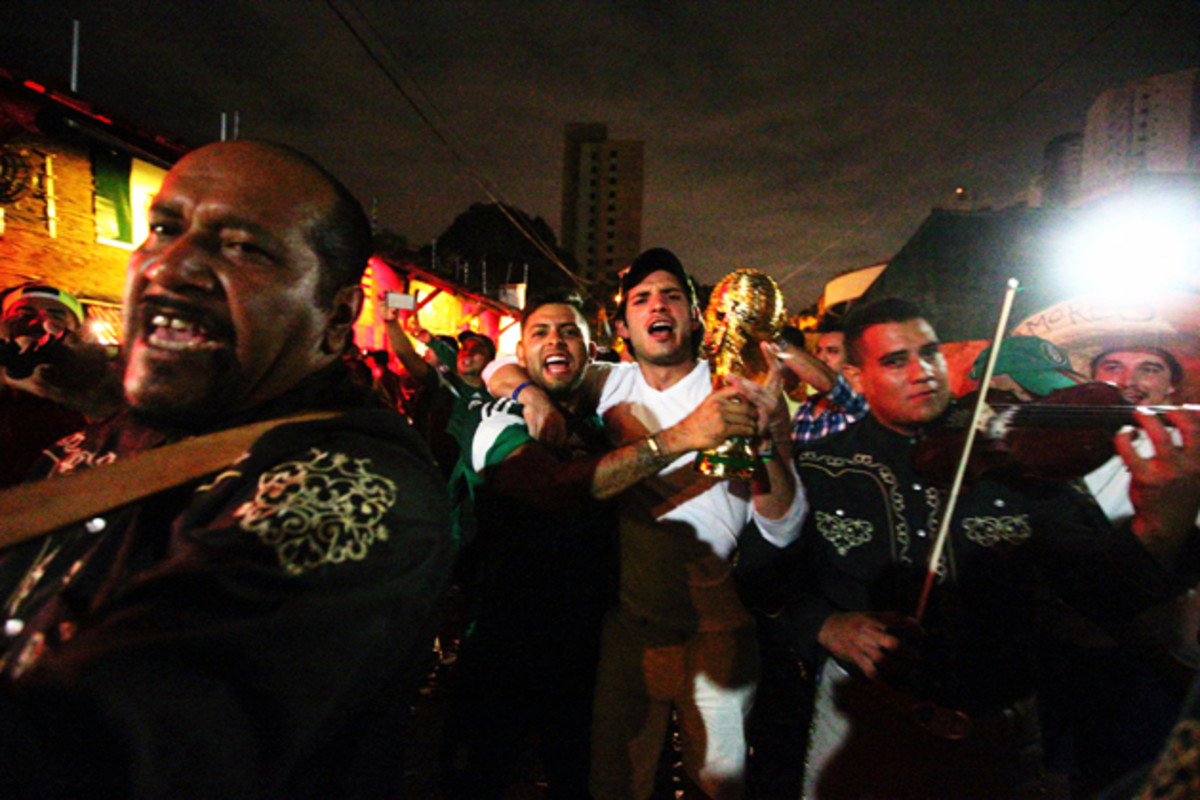
But open, exotic Brazil, was on full display on Friday. Women wore bikinis in the nightclub lines, while World Cup fans chanted and sang and downed shots of liquor and shook cars. Prostitutes intermingled at tables where tourists ate meat skewers and drank beer. Bass thumped up and down the cobblestone streets. One man leaned up against a working girl, her body pressed onto a car, as his hand twirled her hair, their silhouette lit by a streetlight. Another man negotiated with the mother of a pro; our interpreter overheard his concerns, spoken in Spanish, that he would be robbed.
From here, at street level, it is easy to see how Antonia Lima Sousa, a state prosecutor in Brazil, told CNN that “these girls come from extreme poverty, a culture of social exclusion and a profound disrespect for women.” It is also easy to see, as thousands of reals switched hands, why so many of the women turned to this line of work.
Chaves Camera says pimps control the brothels outside of the tourist center, and that criminals often hide out in flophouses to avoid police. Just before midnight, three women stand under two dim lights, outside an apartment building. They give their names as Amile, Carla and Paula. They were born in Brazil but now work in Barcelona, Spain. Carla and Paula are sisters, Amile their cousin.
They say they came for the World Cup, but not just for the money. They make 100 reals (about $45) for an hour in Natal and 100 euros (about $135) in Barcelona, a steep discount, even with an uptick in customers. They came for the party and planned to work and drink and watch soccer through mid-July. They are bummed by Spain’s blowout loss earlier that day and concerned about the defending champion’s chances of even advancing to group play.
Amile says she recently purchased breast implants, the procedure far cheaper in Brazil. As she talks, her eyes dance left and right, always on the lookout, so many potential customers in sight.
We turn back toward our hotel, two blocks away, closer to the beach. Another prostitute approaches. “Don’t worry,” she says, as she leans in close. “It’s OK.” Meanwhile, Mexican soccer fans continue chanting, and the three girls who stood under the streetlight dance amid the crowd.
This is the seventh piece in a series throughout opening weeks of the World Cup, in which SI senior writer Greg Bishop and photographer Simon Bruty chronicle their travel to offer a taste of the cultural side of Brazil. They continue their trip in Natal, the capital of the Rio Grande do Norte.
Bishop Day 7
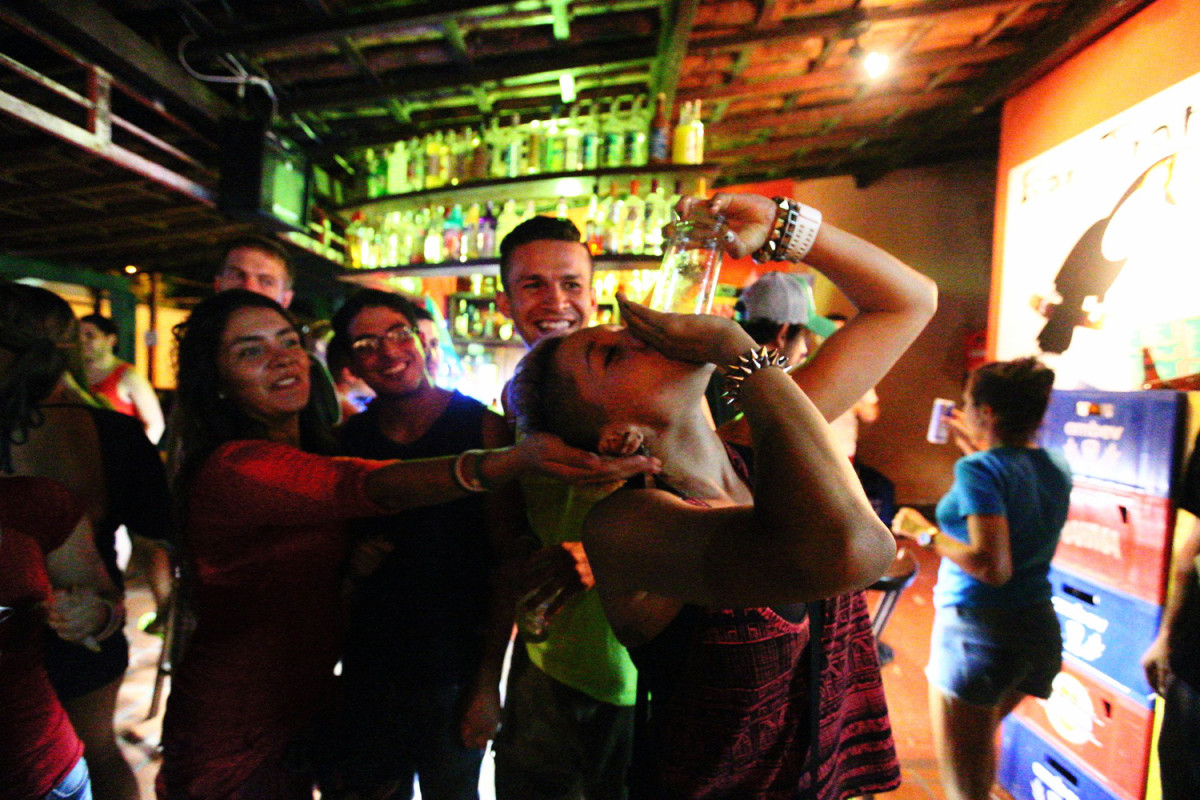
Viagem Brazil: Greg Bishop and Simon Bruty's Travel Guide to the Other Side of the World Cup. (Photos by Simon Bruty/SI)
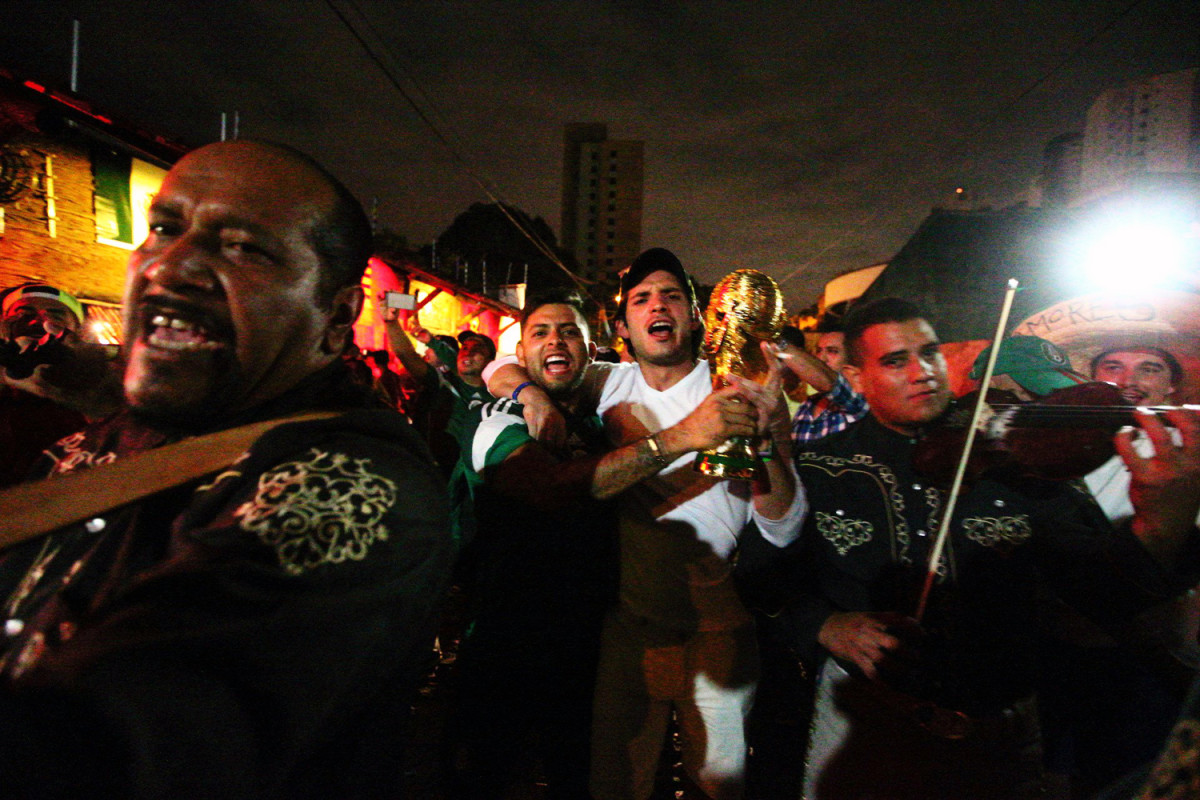
Viagem Brazil: Greg Bishop and Simon Bruty's Travel Guide to the Other Side of the World Cup. (Photos by Simon Bruty/SI)
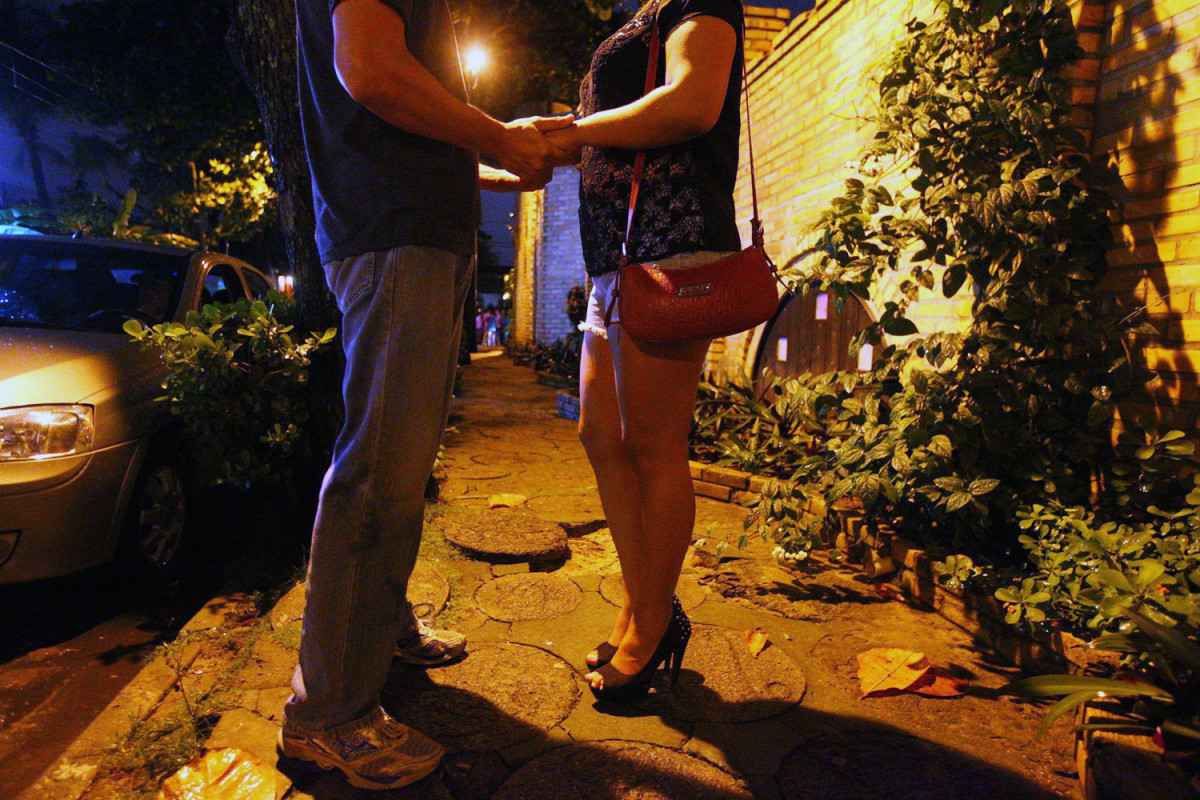
Viagem Brazil: Greg Bishop and Simon Bruty's Travel Guide to the Other Side of the World Cup. (Photos by Simon Bruty/SI)
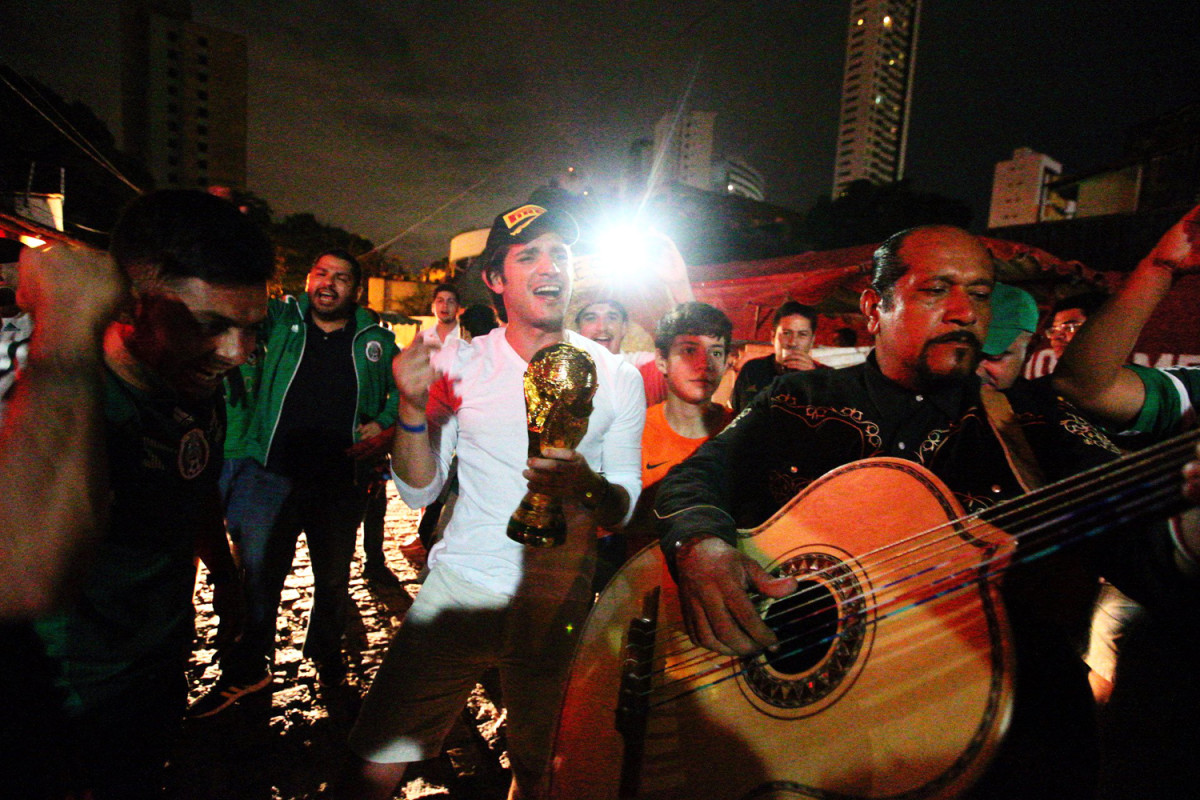
Viagem Brazil: Greg Bishop and Simon Bruty's Travel Guide to the Other Side of the World Cup. (Photos by Simon Bruty/SI)
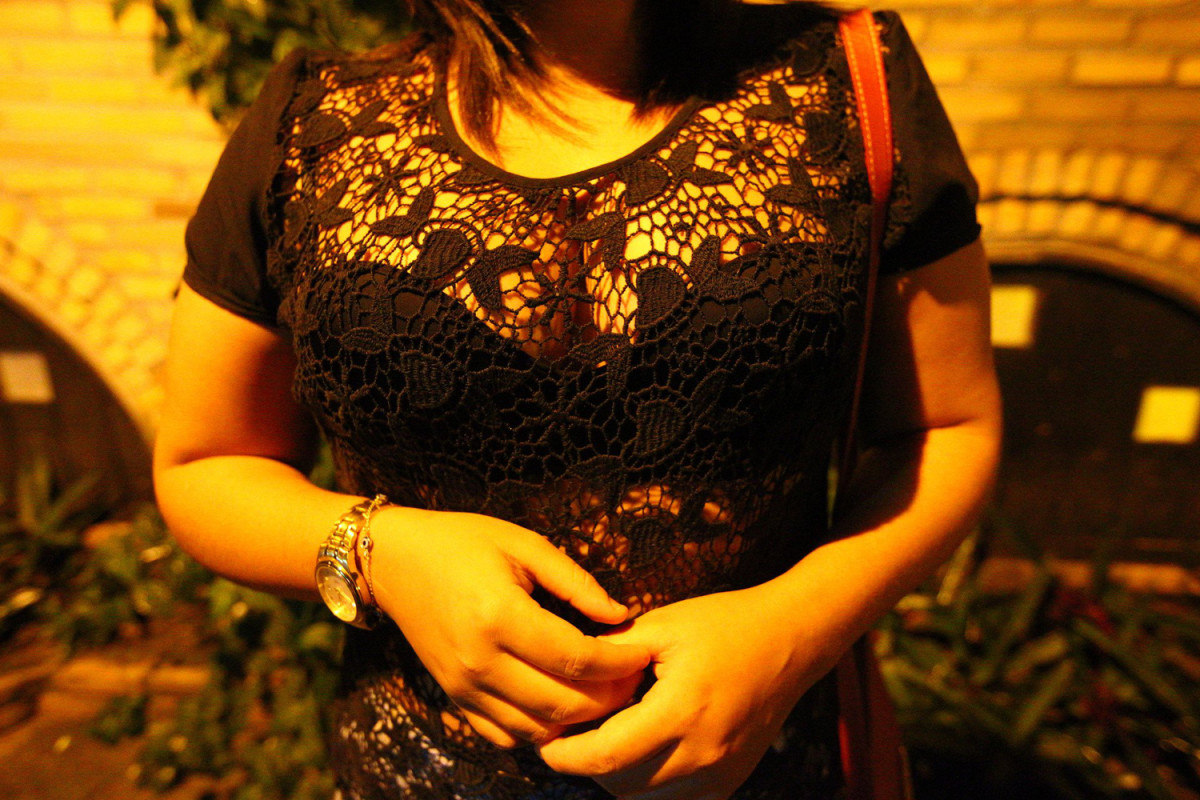
Viagem Brazil: Greg Bishop and Simon Bruty's Travel Guide to the Other Side of the World Cup. (Photos by Simon Bruty/SI)
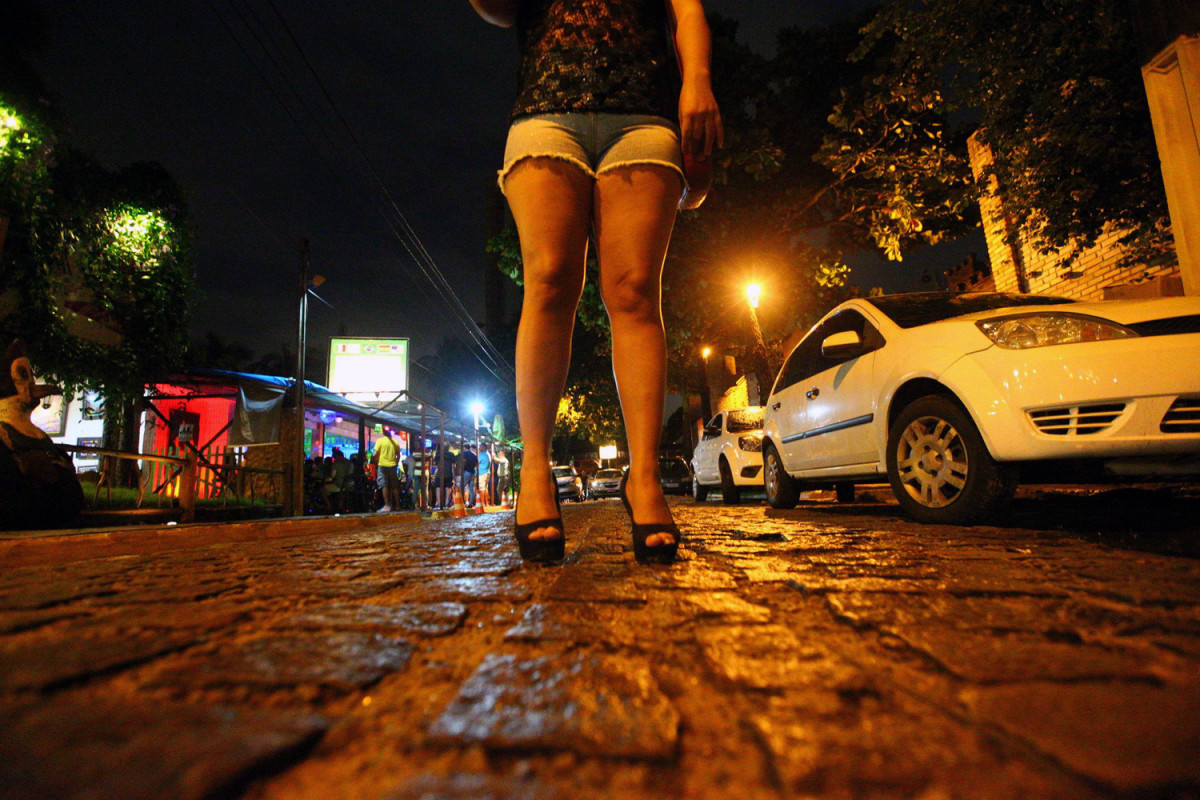
Viagem Brazil: Greg Bishop and Simon Bruty's Travel Guide to the Other Side of the World Cup. (Photos by Simon Bruty/SI)
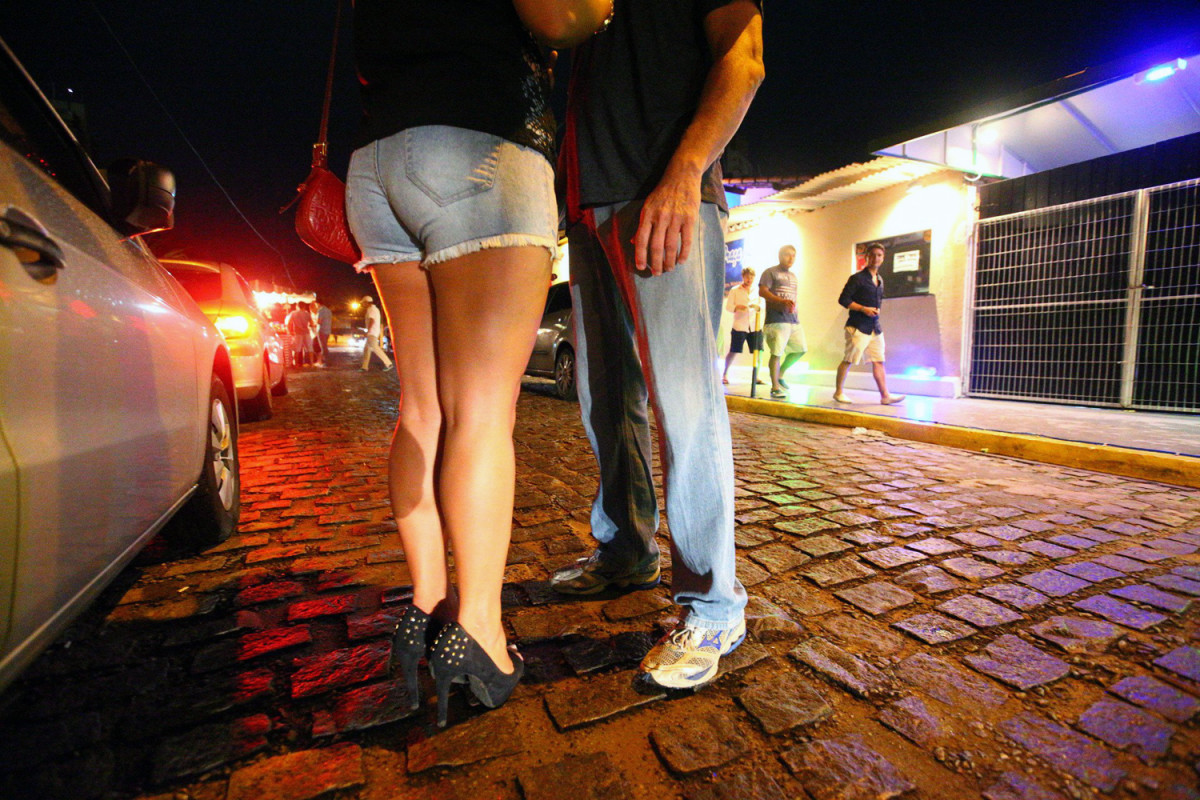
Viagem Brazil: Greg Bishop and Simon Bruty's Travel Guide to the Other Side of the World Cup. (Photos by Simon Bruty/SI)
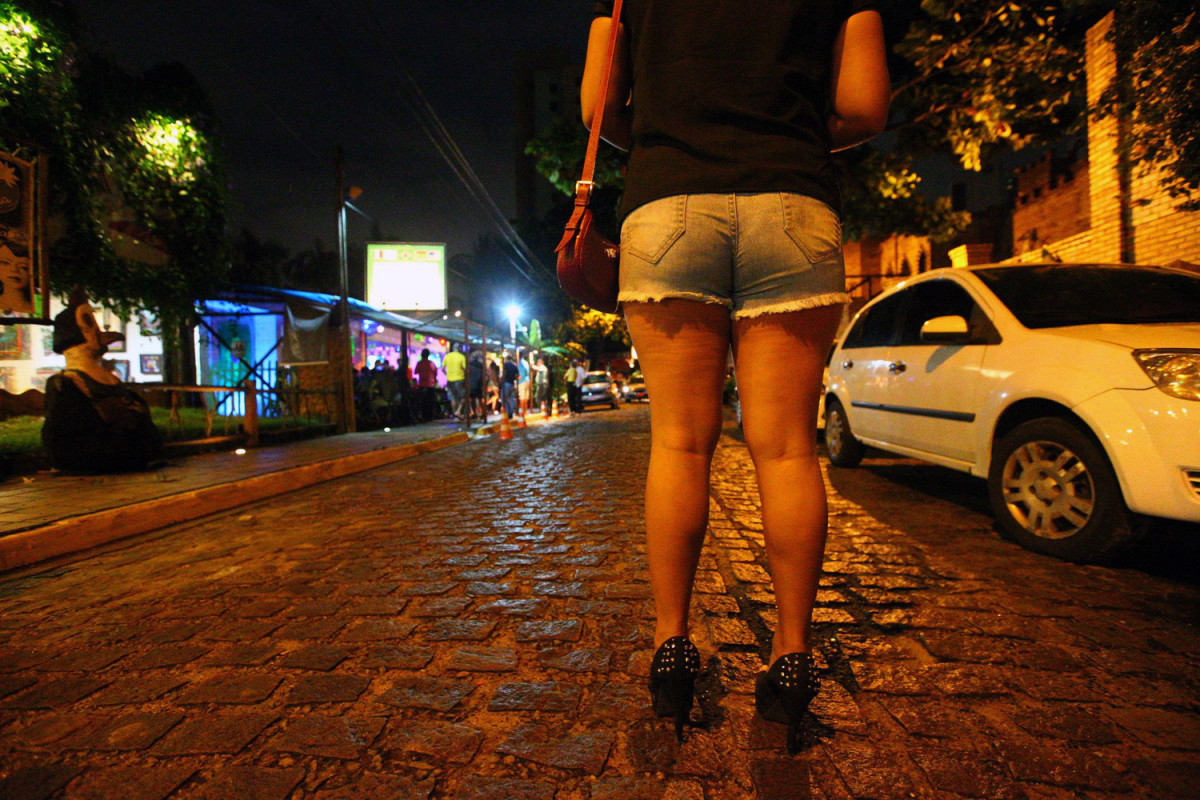
Viagem Brazil: Greg Bishop and Simon Bruty's Travel Guide to the Other Side of the World Cup. (Photos by Simon Bruty/SI)
